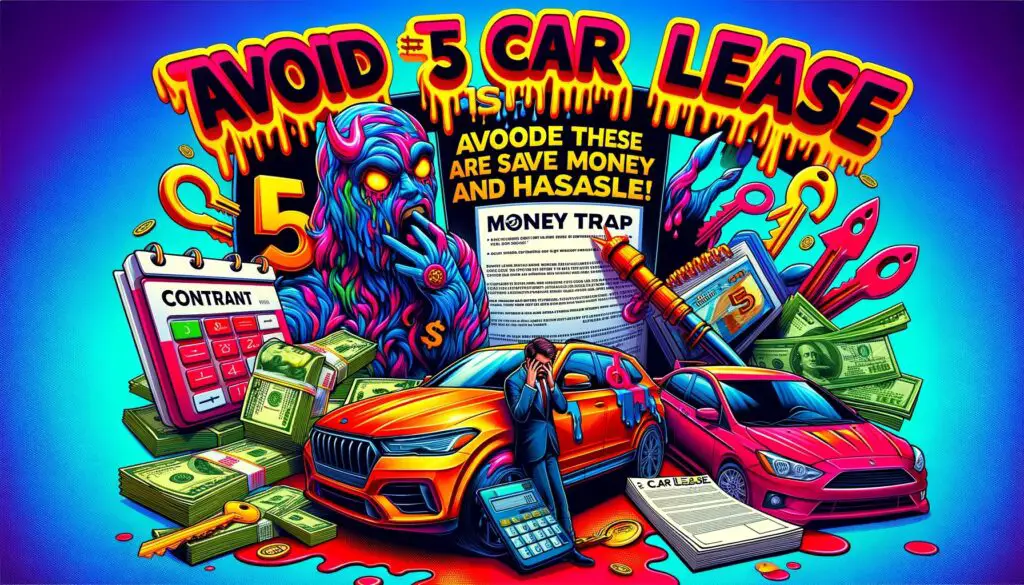Introduction: Decoding the Complex World of Car Leasing
In today’s dynamic automotive landscape, car leasing has emerged as a popular alternative to traditional ownership, offering individuals flexibility and convenience. However, beneath the surface allure lie potential pitfalls that could dent your finances and lead to unnecessary hassle.
Deciphering Car Leasing: A Comprehensive Overview
Car leasing is a contractual agreement where an individual (the lessee) pays monthly fees to utilize a vehicle owned by a leasing company (the lessor) for a predetermined period, typically ranging from two to four years. Unlike ownership, where you bear the full burden of depreciation, leasing allows you to enjoy a new vehicle without the long-term commitment.
Understanding Key Terminology
Before delving into potential pitfalls, it’s crucial to grasp essential terms such as residual value, mileage allowance, and capitalized cost reduction. These terms intricately shape your lease agreement and directly impact your financial obligations.
Steering Clear of Mistakes: The Top 5 Car Lease Blunders Exposed
Mistake #1: Superficial Research Leading to Suboptimal Choices
The cardinal sin of leasing a car is embarking on the journey without thorough research. Failing to compare lease offers from multiple dealerships or leasing companies can leave you blindsided by hidden fees and unfavorable terms. To avoid this pitfall, dedicate time to scrutinize lease durations, mileage limits, and upfront costs.
Mistake #2: Disregarding Personal Driving Habits and Needs
Another common misstep is ignoring your unique driving patterns and requirements. Assessing your typical mileage and selecting a lease agreement with a mileage limit that aligns with your usage is paramount. Moreover, consider the type of vehicle that suits your lifestyle, be it a compact sedan for city commuting or an SUV for family adventures.
Mistake #3: Glossing Over Contract Details
Signing a lease agreement without fully understanding its terms and conditions can spell disaster. Take the time to meticulously review the contract, paying close attention to clauses regarding wear and tear, excess mileage charges, and early termination penalties. Clarify any ambiguities with the lessor to avoid unpleasant surprises down the road.
Mistake #4: Underestimating End-of-Lease Responsibilities
As the lease term draws to a close, lessees often underestimate their end-of-lease obligations, leading to unexpected expenses. Plan ahead by scheduling a pre-return inspection to assess any excess wear and tear, ensuring timely repairs to avoid hefty fees. Additionally, familiarize yourself with the process of returning the vehicle or exploring lease-end purchase options.
Mistake #5: Succumbing to Impulse Decisions
Impulse decisions in the leasing process can have long-lasting repercussions. Resist the temptation to lease a vehicle solely based on its initial appeal or flashy features. Instead, conduct thorough research, weigh your options objectively, and negotiate terms that align with your budget and preferences.
Crafting a Smooth Leasing Experience: Tips for Success
Conduct In-Depth Research
Prioritize thorough research before committing to a lease agreement. Compare offers from various sources, scrutinize terms and conditions, and leverage online resources to make informed decisions.
Evaluate Your Driving Needs
Assess your driving habits, mileage requirements, and vehicle preferences to tailor the lease agreement to your specific needs. Opt for a mileage limit that accommodates your usage patterns and select a vehicle that aligns with your lifestyle.
Scrutinize the Contract
Before signing on the dotted line, carefully review the lease contract in its entirety. Seek clarification on any ambiguous clauses and ensure that you understand your rights and responsibilities as a lessee.
Plan for Lease End
Anticipate lease-end responsibilities and prepare accordingly. Schedule a pre-return inspection, address any wear and tear issues promptly, and explore lease-end options well in advance to avoid last-minute surprises.
Exercise Caution
Exercise prudence throughout the leasing process. Avoid impulsive decisions, negotiate terms diligently, and prioritize long-term affordability and satisfaction over short-term gratification.
Conclusion
In conclusion, car leasing can be a convenient and cost-effective way to drive a new vehicle without the commitment of ownership. However, to make the most of this arrangement and avoid costly mistakes, it’s essential to conduct thorough research, understand lease terms, and evaluate your driving habits and needs carefully. By following the tips outlined in this guide, you can navigate the world of car leasing with confidence and ensure a smooth and hassle-free experience.







